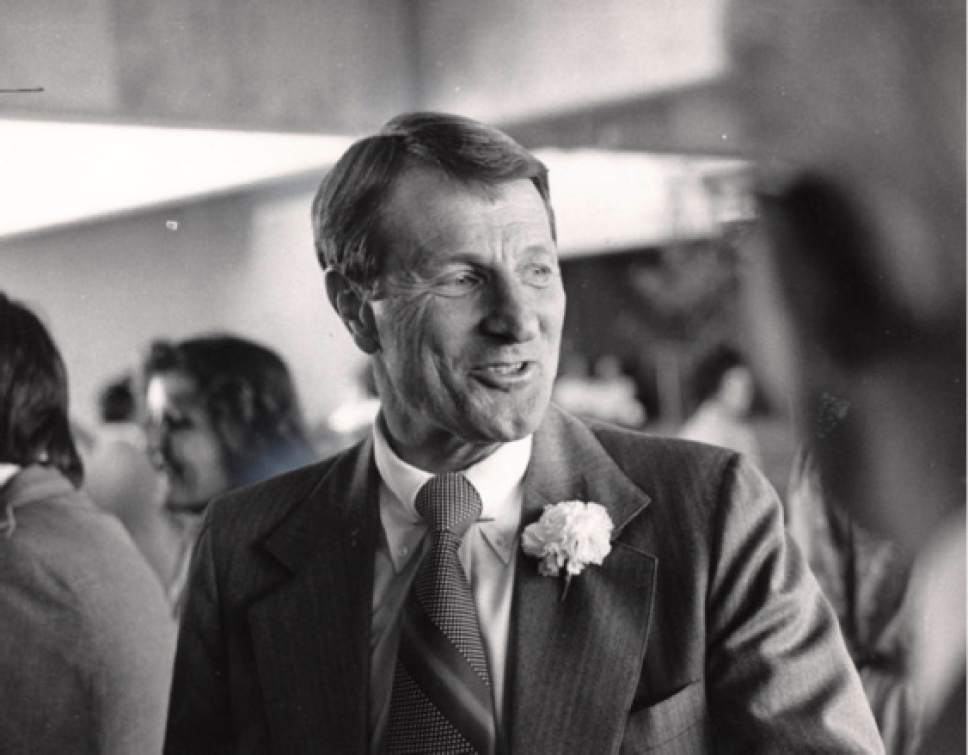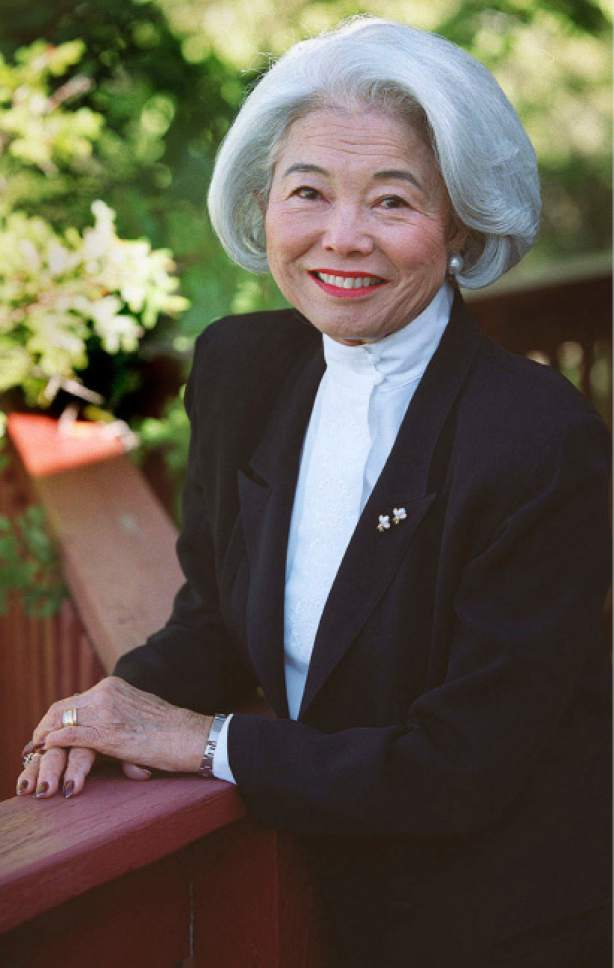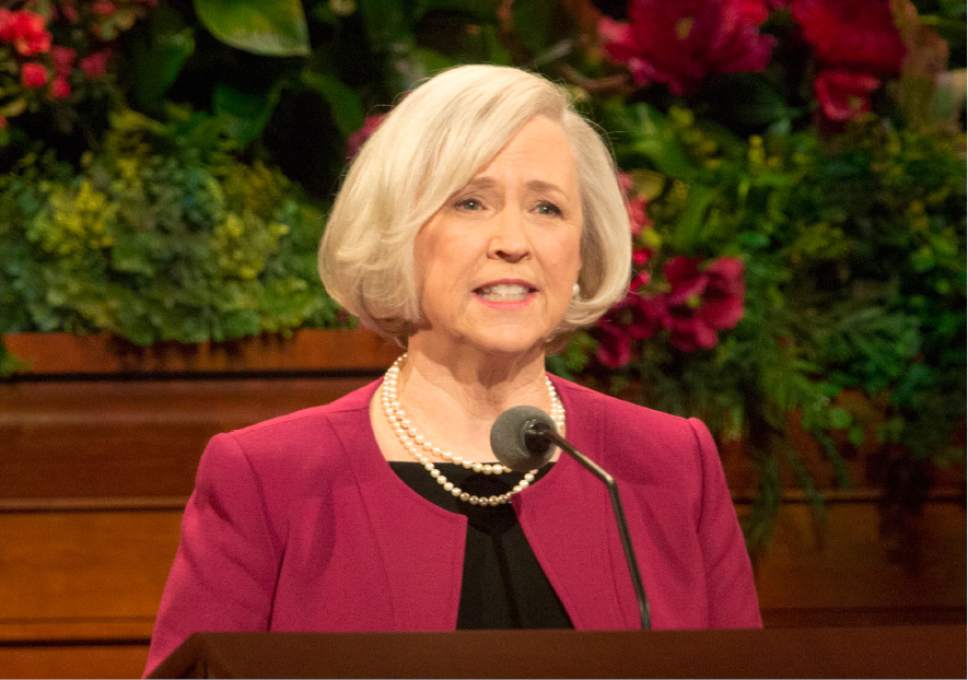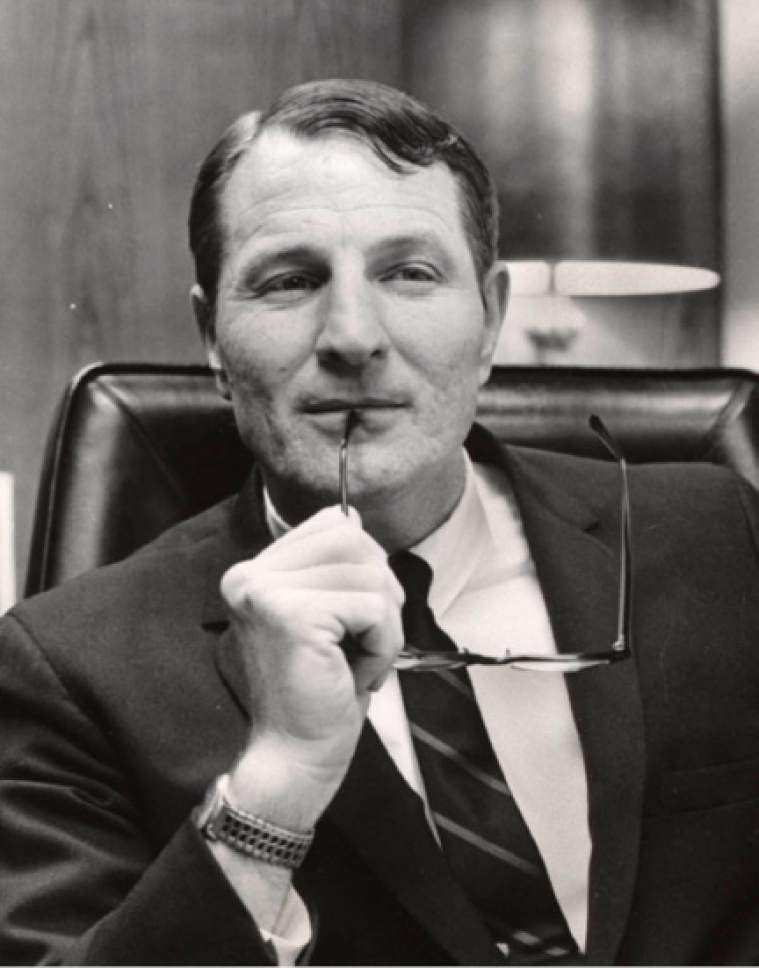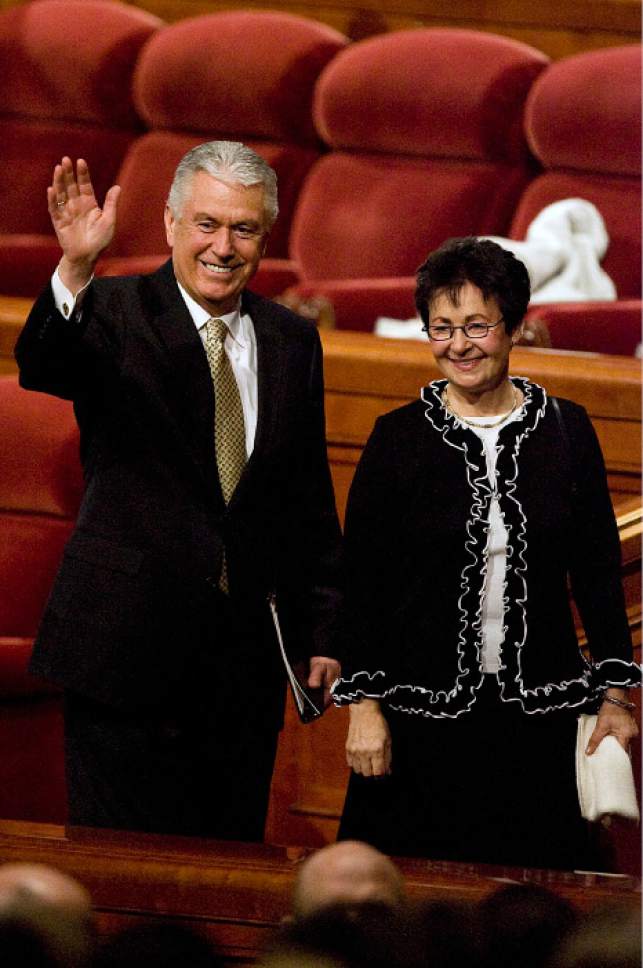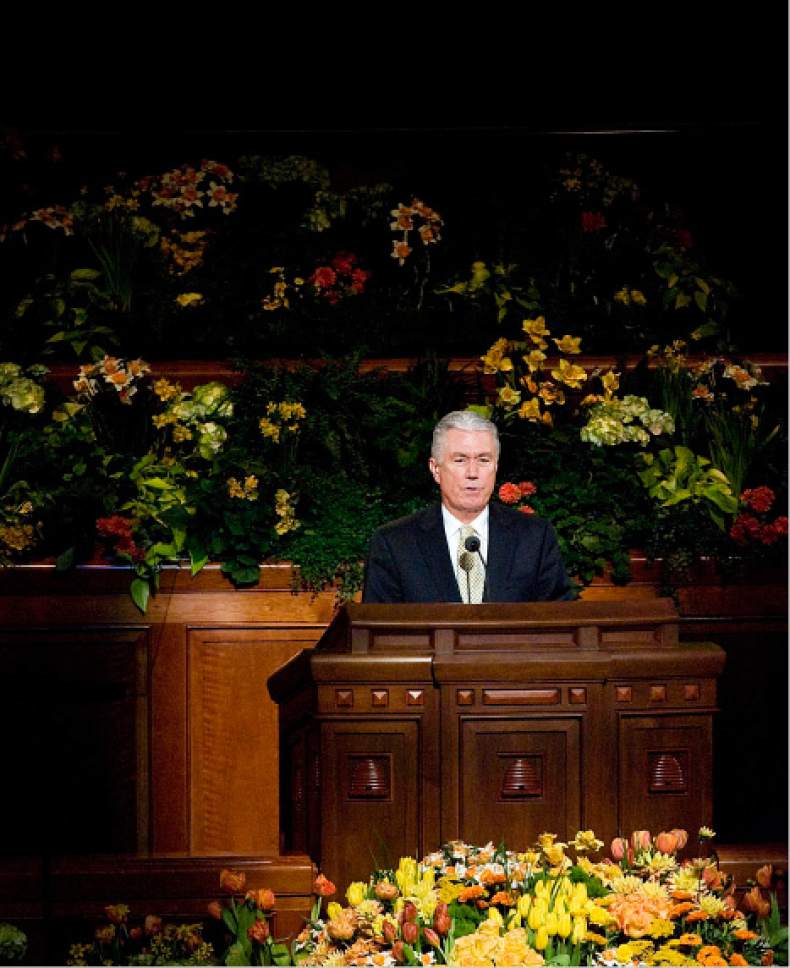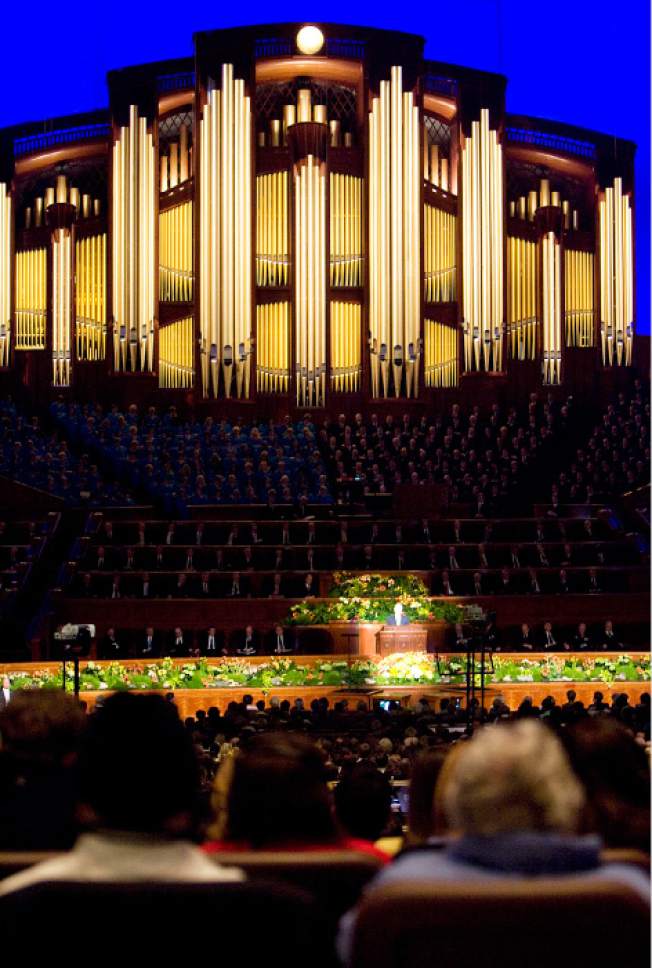This is an archived article that was published on sltrib.com in 2016, and information in the article may be outdated. It is provided only for personal research purposes and may not be reprinted.
Every six months, Mormons receive counsel, encouragement, explanations, even chastisement from their top leaders at General Conference.
We asked several Latter-day Saints to recall their favorite conference sermons:
J. Tekulve Jackson-Vann • Native of Milledgeville, Ga., he is a doctoral student in medical family therapy at Northcentral University and a marriage and family therapist.
In April 2011, I was facing one of the biggest crises of my faith. I was serving as Young Men president in a small branch in the South, and I was facing a divorce.
Every part of me had tried all I knew to save the marriage, but it was clear that the conditions would not improve, and that for the sake of my children and my own stability, I had to get out. But getting divorced was never on my checklist. I had finally faced the reality of the decision as I rode to the priesthood session of conference with the elders quorum president. I knew I had to talk to the stake president, but I was extremely afraid of what he would think.
President Dieter F. Uchtdorf, second counselor in the governing First Presidency, was the speaker who saved me that night. In his talk "Your Potential, Your Privilege," he told a story of a man who had saved a long time to purchase ticket on a cruise ship. Thinking that he had used all of his money, he packed meager snacks and didn't venture much out of his cabin. On the last night of the cruise, a crew member knocked on his door to ask him which of the last night dinners he would be attending. He told the crew member that he would not be attending any of them because he spent all that he had on the ticket. It was then that he was informed that the cost of his ticket covered all of the activities on the ship, and he had been living well below the privileges that his ticket had afforded him.
In that moment, I realized that living the gospel faithfully had afforded me the blessings of peace and safety, and I had been living well below those blessings and the privilege of having peace in my home.
President Uchtdorf asked, "Are we as priesthood holders living below our privileges when it comes to the sacred power, gifts, and blessings that are our opportunity and right as bearers of God's priesthood?"
For me, it is a question whose answer meant that I had to do what I knew would be difficult. In the years that have passed, I often return to that talk as I am tempted to think that perhaps my priesthood power and authority have been diminished because I am a single member of the church. But, no, my ticket is still good, and my privileges are still limitless.
Kalani Tonga • A Brigham Young University graduate, she works as an administrator for a volleyball club.
"Sharing Your Light" by Neill F. Marriott, second counselor in the Young Women general presidency, is a talk that touched my soul and comes to my mind often as I go about my daily life. In her October 2014 sermon, Sister Marriott encourages us to bring light and love into the lives of those around us.
"You carry a circle of influence with you wherever you go," she said. "It is felt by the people around you. … I agree with Sister Harriet Uchtdorf, who wrote, 'You … are vibrant and enthusiastic beacons in an ever-darkening world as you show, through the way you live your lives, that the gospel is a joyful message.' "
I love the idea that we carry a circle of influence with us wherever we go. Regardless of our current circumstances, every day provides a new opportunity to live our lives in a way that brings joy to those within that circle. No matter how dark our past or how bleak our future appears to be, each moment we can choose to make the world a brighter place by lifting and loving those around us.
As a single working mom, I often lament the fact that I cannot do more or be more in this season of my life because so much of my day is spent either working or caring for my young children. I find solace in the idea that I carry a circle of influence with me wherever I go — whether that is at work, at home with my kids or even online as I interact on social media. When times get hard, and my 4-year-old dumps vegetable oil all over the kitchen floor, my three kindergartners are each yelling, "No, YOU kicked ME first!" and I really just want to hide in the bathroom and let my kids figure things out "Lord of the Flies"-style, I think back on this talk, pray for patience, and look for humor to help me influence my little circle in an uplifting way.
Sister Marriott's talk encourages me to be the best version of myself, to live compassionately and intentionally, and to consciously choose to follow the example of Christ.
Molly Bennion • A volunteer attorney, she is a board member with Dialogue: A Journal of Mormon Thought.
Older now, I accept I will not have time to learn all I want to learn. The more I know, the more I know there is to know. The more I do and see others do, the more I see must be done. Faith waxes and wanes. How can I ever be ready to meet my savior? Yet not to embrace the task would be a form of despair, the opposite of hope. I lean hard on hope.
The 1996 talk "Raised in Hope" by Chieko Okazaki, first counselor in the women's Relief Society general presidency, resonates with me. She called hope "a modest but very tough everyday virtue" and urged us to "choose to learn even though you must struggle against your own ignorance and that of others. Choose to love, even though ours are days of violence and vengeance. Choose to forgive, to pray, to bless another's life with simple kindness."
Choose the savior. Choose hope. Choose life. Choose love, whatever the challenges in our world, our church, our lives. Hope, the everyday virtue, is the breeding ground for faith and charity. Hope must be very tough indeed.
Arthur VanWagenen • A filmmaker, he is a director for Excel Entertainment Group and has overseen the release of several recent LDS-produced movies.
It's surely cliché to christen a conference talk from my mission era as a "favorite," but in this case, it's not merely a favorite because of the impact it had on me at the time, but because of the impact it continues to have on me and the way the principles of the talk transform and take on new meaning as I re-engage with it from different phases or places in my life.
The talk is the 1995 "Swallowed Up in the Will of the Father" by apostle Neal A. Maxwell.
I've never had an easy time determining Heavenly Father's will in the specific, particular sense. The question "what does God want me to do with my life?" sends me into a depressive spiral of confusion and anxiety. And the reason it has this effect, I believe, is because it misstates or misframes the question. Elder Maxwell proclaims that "[s]o many of us are kept from eventual consecration because we mistakenly think that, somehow, by letting our will be swallowed up in the will of God, we lose our individuality. What we are really worried about, of course, is not giving up self, but selfish things — like our roles, our time, our preeminence, and our possessions."
This idea is so counterintuitive, so against our natural inclination to serve our egos and to lay claim to our lives, that we can't help but to frame the question of understanding God's will in possessive terms — what does he want me to do with my life? I think the real work of religion and the gospel is to arrive at a place (again and again and again) where we really feel like our lives are not our own. In the rare moments I am able to do this, I find myself more open-minded, open-hearted, and more at peace with this life.
This is a talk that demands that we do the work of shedding our egos and selves in order to make room for taking on the burdens of others. It's painful and difficult work, but is no less than the work of salvation.


